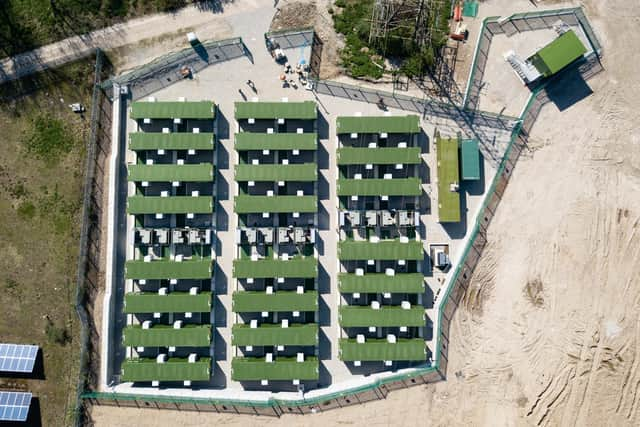'Significant' step to net-zero as plans revealed for one of biggest battery storage projects in Scotland
The 50-megawatt (MW) facility, in Wishaw, North Lanarkshire, is due to be operational by the end of 2022. It will be the first in Scotland to ease constraints directly from the transmission network, helping to push down energy prices, and accelerate the country’s uptake of renewable energy, according to project developer Zenobe.
Over the next 15 years, the project is forecast to remove 450,000 tonnes of CO2 – equivalent to taking 18,000 diesel and petrol cars off the road.
Advertisement
Hide AdAdvertisement
Hide AdThe company has now received the rights to the site, and the build will start in early 2022, aiming to go live at the end of next year.


Bosses at the firm said the project marked a “significant step for Scotland” as it drives towards a 2045 net-zero target. The country has already moved away from fossil fuel production, with 97 per cent of electricity demand in 2020 met by renewables.
By connecting to the transmission network, the battery facility will be able to manage constraints more effectively.
James Basden, co-founder and director of Zenobe, said: “We are incredibly excited to be launching this pioneering project.
“With some of the world’s most ambitious climate change targets, and COP26 taking place in Glasgow this November, all eyes are on Scotland, and this is exactly the type of innovation needed to help the country become a world leader in renewable energy production.
“In working towards climate targets, batteries like this will play an essential role in stabilising the grid and allowing a greater uptake of renewables, ultimately ensuring a more sustainable future for both Scotland and the UK more broadly.”
The firm is one of the largest independent owners and operators of battery storage with some 170MW of contracted storage assets, around 20 per cent market share of the electric bus sector, its own proprietary software and a large portfolio of projects in the pipeline.
Zenobe is already working with transport operator McGill’s to help three Scottish bus depots go electric. The tie-up will see the bus facilities in Johnstone, Inchinnan and Dundee being electrified, with capacity for further expansion, helping to facilitate the launch of dozens of electric buses.
A message from the Editor:
Thank you for reading this article. We’re more reliant on your support than ever as the shift in consumer habits brought about by coronavirus impacts our advertisers. If you haven’t already, please consider supporting our trusted, fact-checked journalism by taking out a digital subscription: www.scotsman.com/subscriptions
Comments
Want to join the conversation? Please or to comment on this article.
